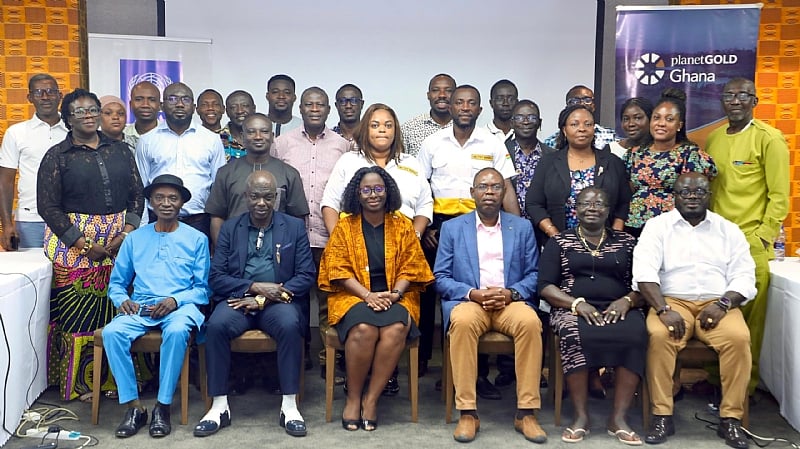Artisanal and small-scale gold mining (ASGM) forms the backbone of many communities across Ghana, providing livelihoods for millions. These miners, driven by the promise of economic stability, face a daily struggle against informality, hazardous working conditions, and lack of financial support. Despite their significant contribution to local economies, they often operate outside the formal banking system, relying on environmentally damaging practices like mercury use for gold extraction, which jeopardizes their health and the surrounding environment. The planetGOLD Ghana Project, a collaborative initiative, aims to transform this precarious reality by empowering miners and financial institutions to create safer, more sustainable, and financially inclusive livelihoods.
The global significance of ASGM is undeniable. The International Labour Organization estimates that over 100 million people depend on this sector for their survival, with the World Bank further specifying that around 45 million individuals are directly employed in ASGM. This underscores the sector’s crucial role in global employment and poverty reduction. In Ghana, ASGM contributes significantly, accounting for 30-40% of the country’s total gold production and employing approximately one million people directly, with an additional 4-4.5 million dependents relying on the income generated. However, the predominantly informal nature of the sector, with nearly 80% of operations unlicensed, creates a barrier to accessing credit and formal financial services. This informality perpetuates environmental degradation, income instability, and vulnerability to illicit activities.
The planetGOLD Ghana Project, spearheaded by the Environmental Protection Agency (EPA) in partnership with UNDP Ghana and funded by the Global Environment Facility (GEF), is tackling these challenges head-on. A key component of this initiative is a two-day training workshop designed to empower both miners and financial institutions. The first day focuses on equipping artisanal miners with essential skills in financial literacy, business planning, risk management, and responsible procurement. The training also emphasizes sustainable mining practices and adherence to Environmental, Social, and Governance (ESG) standards, crucial for establishing responsible and traceable gold supply chains. This education empowers miners to understand the requirements of financial institutions, fostering confidence and enabling them to access much-needed financial support.
The second day of the workshop targets financial institutions, providing them with a deeper understanding of the ASGM value chain in Ghana. It addresses the perceived risks associated with lending to the sector, highlighting the actual risk profile and exploring opportunities for developing inclusive financial products tailored to the needs of small-scale miners. This interaction reframes ASGM from a risky venture to a viable and responsible investment opportunity, encouraging financial institutions to engage with the sector and support its sustainable growth. By bridging the knowledge gap between miners and financial institutions, the project aims to foster trust and collaboration, paving the way for a more resilient and formalized ASGM sector.
This initiative goes beyond simple knowledge sharing; it represents a crucial step towards transforming Ghana’s ASGM sector into a mercury-free, financially inclusive, and environmentally sustainable industry. The planetGOLD Ghana Project, supported by UNDP and UNIDO, is working to reduce mercury use and improve miners’ incomes through integrated formalization approaches. This includes facilitating access to legitimate financing and promoting the adoption of mercury-free technologies, ultimately contributing to the development of responsible gold supply chains in Ghana. The project’s future plans involve piloting innovative financial tools and scaling up access to cleaner technologies, ensuring that responsible gold production benefits both people and the planet.
In essence, the planetGOLD Ghana Project is laying the groundwork for a future where artisanal and small-scale gold mining contributes to both economic prosperity and environmental sustainability. By equipping miners with the knowledge and resources to formalize their operations and by engaging financial institutions to provide tailored financial solutions, the project is fostering a more equitable and responsible mining sector. This shift not only improves the lives and livelihoods of miners and their communities but also safeguards the environment for future generations. The project’s emphasis on capacity building, access to finance, and mercury-free technologies embodies a holistic approach to sustainable development within the ASGM sector, ensuring its long-term viability and positive impact on Ghana’s economy and environment.














